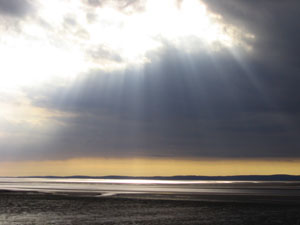The Death of Tell
Henry Morford
THERE are, with forms celestial,
And faces starry-bright,—
Throughout the joyous youth-time
A hope and true delight,—
Who fall, as age advances,
Beneath some sad eclipse,
And leave no pleasant record
To be told by fondest lips.
There are, in whom the Godhead,
In youth but dimly seen,
More brightly glows and flashes,
In conduct as in mien,—
When years have laid their burthen
On shoulder and on head,—
So “the last days are the best days,”
As one of old has said.
Methinks no crown he needed,—
Thus known to world-wide fame,—
As one who wore so nobly
The Swiss Deliverer’s name:
To be true Tell of Altorf,—
What more could patriot need?
And how could he be honored
By any later deed?
And yet there was a crowning,
Unknown to history’s roll:
One last great revelation
That spoke the Switzer’s soul;
And though his years of silence
Have grown to centuries gray,
Why should we pause, to widen
His glory, if we may?
There ’s a little stream, the Schächen,
Not far from Altorf’s walls,
That downward to its parent,
The Reuss, in tumult brawls;
And dangerous is its current
To feeble limb or hand,
When those in lusty manhood
Its force can scarce withstand.
Old age had bowed Tell’s figure,
And blanched his dark-brown hair;
The hand that clove the apple
No more such deed might dare;—
When in that raging torrent
He saw a struggling child,
While on the bank the mother
In helpless fright ran wild.
The Switzer paused no moment;
Though prudence well might ask
If yet the limb held vigor
For such a venturous task.
He plunged to do that rescue:
He sank, to rise no more
Until, with weeds and timber,
He floated dead to shore.
And thus the great life ended:
God!—was it not the best
Of all the deeds of valor
That won a hero’s rest?
So mused I, by the Schächen:
So say we, true and well,
That the last deed was the best deed,
That closed the life of Tell!
